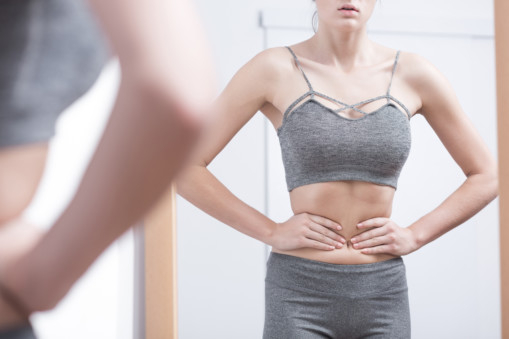
A majority of girls with low body esteem will skip meals and avoid seeing friends and family, participating in extra-curricular activities or seeing a doctor, a large survey has found.
The research, based on interviews with 5,165 girls aged 10 to 17 in 14 countries, also found that more than half of girls with low body esteem struggle to be assertive.
The survey, carried out by Endelman Intelligence for the 2017 Dove Global Girls Beauty and Confidence Report, found that only 46 per cent of girls globally had high body esteem, while the figure was even lower in the UK (39 per cent). Of the countries included, only China and Japan fared worse.
The co-author Phillippa Diedrichs, associate professor from the Centre for Appearance Research, University of the West of England, said: “These findings indicate that, despite valiant efforts, body image remains an issue for girls not only in the UK, but globally, too. We still have an enormous amount of work to do in helping girls develop the resilience they need to overcome the impact of beauty and appearance pressures.
“We also need to change the social and cultural environment directly so that girls are not judged on their looks and are not held back from getting a seat at whatever table they want, be it in the boardroom, or in parliament, because of body image concerns.”
Seven in 10 girls (nine out of 10 in the UK) with low body esteem told the researchers they stopped themselves from eating or otherwise put their health at risk. Eight out of 10 (nine out of 10 in the UK) said they avoided seeing friends and family or trying out for a team or club.
In each case, the figure among girls with high body esteem was much lower. The report concludes that higher levels of body esteem have a lasting impact on a girl’s confidence, resilience and life satisfaction. Girls with low body esteem are more likely to succumb to beauty and appearance pressures, withdraw from “fundamental life-building activities” and fail to reach their potential, it says.
It found that girls with low body esteem feel particular pressure from photographs of beautiful girls or women in magazines but the majority of girls acknowledge that they present unrealistic aspirations. Seven in 10 of all girls surveyed understood that images were altered or airbrushed and the same proportion agreed that very few women looked like those on screen.
Social media has come under scrutiny for its impact on girls’ body image in recent years but the Dove report suggests its effect is mixed.
While social media users were more likely to feel pressure to look a certain way than those who did not use the likes of Instagram and YouTube, half of girls (four out of 10 in the UK) said they felt more confident interacting with people online.
The co-author Jess Weiner, adjunct professor at the University of Southern California Annenberg school of journalism, said that, despite trolls and cyberbullying, girls were “harnessing the power of social media to democratise the beauty narrative... and flooding the space with their diverse stories and images”.
The authors identified reasons for hope in the fact that seven out of 10 girls said too much importance was placed on beauty as a source of happiness. Eight out of 10 said every girl had something beautiful about them.
They recommend educating girls to minimise the effects of low body esteem and providing diverse narratives in the media. Weiner said: “We need a curriculum focused on media literacy that can help girls identify and actively combat the negative gender stereotypes , violence, and hypersexualisation they encounter on screen.”
The other countries featured in the report, chosen for their diversity of culture and tradition around beauty, were Australia, Brazil, Canada, Germany, India, Indonesia, Mexico, Russia, South Africa and Turkey.












